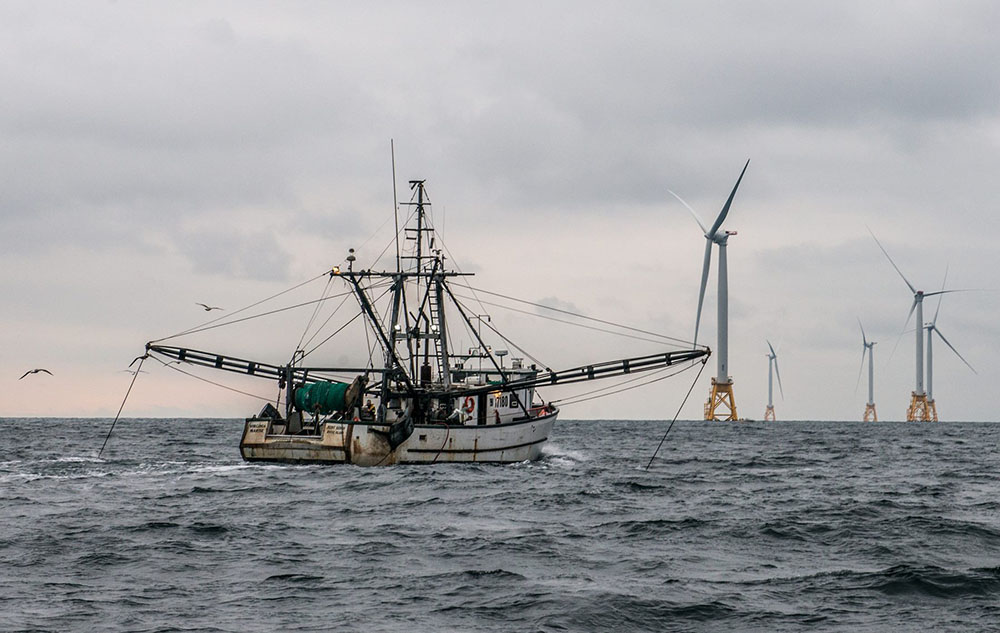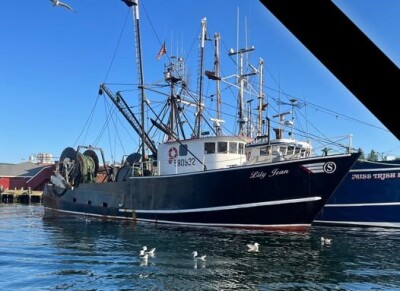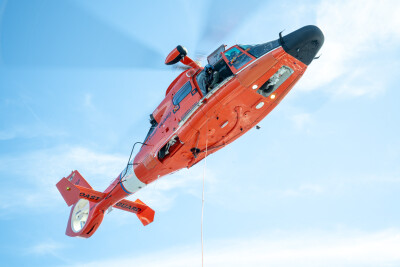[The Responsible Offshore Development Association published this letter online March 19, seeking support from fishing communities for these comments on federal offshore wind energy policy.]
The undersigned fishing community members submit these requests to National Marine Fisheries Service (NMFS) and Bureau of Ocean Energy Management (BOEM), noting the unclear decision authority since January’s revocation of the “One Federal Decision” policy that streamlined federal permitting of offshore wind energy (OSW) and other large infrastructure projects.
We stand willing to work with the Administration to use our knowledge about ocean ecosystems to create innovative, effective solutions for climate and environmental change. There are opportunities for mutual wins, however, OSW is an ocean use that directly conflicts with fishing and imposes significant impacts to marine habitats, biodiversity, and physical oceanography. Far more transparency and inclusion must occur when evaluating if OSW is a good use of federal waters.
However, we must be treated as partners, not obstacles. We’ve dutifully come to the table, despite the irony of the “table” being set by newcomers in our own communities employing the finely honed “stakeholder outreach” tactics of their oil and gas parent companies. We’ve diligently commented on the major conflicts and concerns of offshore wind development and taken valuable time off the water for countless one-sided meetings under false hope that our knowledge mattered. Scientific efforts from fishing experts are improving, although they need more funding and time. We can point to few, if any, other true considerations we’ve received.
We need a national strategy before OSW development. This could be modeled off Rhode Island’s Ocean Special Area Management Plan, which created an inclusive state process for holistic OSW planning. OSW decisions must be based on cost-benefit analyses, alternative ways to address carbon emissions, food productivity, and ocean health. BOEM may approve a dozen project plans this year, and new leases appear imminent from Hawaii to California, South Carolina to the New York Bight and Gulf of Maine. New technologies allow OSW deployment in all US waters in the near future, and planning is occurring in the Gulf of Mexico and Pacific Northwest. Selling off our oceans with no strategy to protect food security threatens all of us.
BOEM must implement and follow a clear process for OSW permitting. In December 2020, BOEM formally stated that the Vineyard Wind I project was terminated. As RODA’s Board of Directors stated in a December letter to BOEM, “NEPA does not allow for a project proponent to simply withdraw and resubmit its application at will… nor to interfere with a federal agency’s review in any way.” They asked:
Which will it be? The government can either follow NEPA and its public notice requirements, change the process in a fair and transparent way, or let developers unilaterally drive agency decision-making. The public deserves certainty and transparency, especially for those directly impacted by this process.
We now have an answer; immediately after the change in Administration BOEM announced the project’s resumption–then promptly issued a Final Environmental Impact Statement (FEIS)–without responding nor justifying the legal, regulatory, or public process mechanism for pretending the termination never happened. This corresponds with the overall secrecy and shoot first, aim later approach to OSW so far regardless of political party. And directly contradicts a Department of Interior legal memo from December stating OSW projects can’t be approved if they cause unreasonable interference with fishing.
Aggression has no place in natural resource management. The Biden Administration promised “to take aggressive action to tackle climate change.” Coastal states have announced aggressive OSW goals without calculating cost, carbon reduction benefits, or marine ecosystems stress. Foreign developers have aggressively showed up in our communities claiming to own vast portions of the grounds where we’ve worked for centuries, including through the ongoing pandemic, to produce sustainable, healthy, and low-carbon footprint protein for all Americans. We’re aggressively prioritizing one specific option to address climate change, despite it carrying enormous environmental and economic unknowns. Is “aggressive” the best approach to thousands of square miles of this?
We can better address climate change using any of these words: deliberate, balanced, inclusive, collaborative, holistic, effective, equitable, results-oriented, considered, science-based, transparent, intelligent, conservation-minded, honest, participatory, and–perhaps most importantly in light of DOI’s legal guidance–reasonable.
Records of Decision must include mitigation measures. If BOEM chooses to continue signaling it will unreservedly prioritize “aggressive” ocean industrialization before a comprehensive plan or strategy is in place, it must mitigate the effects of such reckless action (although this alone will not cure planning deficiencies). Our communities have consistently requested these reasonable accommodations:
- Clarify whether approving an offshore wind project will usurp NOAA Fisheries' mission and statutory authority to regulate U.S. fisheries, since the FEIS indicates major impacts to fisheries science and research including disruption of NMFS stock assessment surveys;
- Improve federal environmental review analysis and clearly identify scientific unknowns;
- Establish safe transit areas of 4 nm through the 1400 square mile New England lease areas, which will not produce an additional “funneling effect” when they are overlaid on existing proposed layouts (and the argument that they do is arbitrary, against common sense);
- Monitor fisheries impacts for the life of projects and utilize adaptive management;
- Prohibit turbines and cables in sensitive habitat including spawning areas, habitat areas of particular concern, and high-value fishing grounds;
- Improve communications with fishermen in culturally appropriate formats;
- Perform “micro siting” of turbines and cables with fishermen who know the ecosystem;
- Establish science-based, inclusive, and predictable plans for compensatory mitigation of all impacts to fishing communities while recognizing that compensation is a last resort and all impacts must be first avoided;
- Standardize processes for gear loss claims across all phases of project development including site surveys, including consideration of quantitative modeling by Rhode Island’s Fishermen’s Advisory Board;
- Address interference from turbines to marine radar; - Require deicing technology and practices; and
- Ensure that any economic benefits of offshore wind accrue to the U.S. not at some undetermined point in the future, but now.






